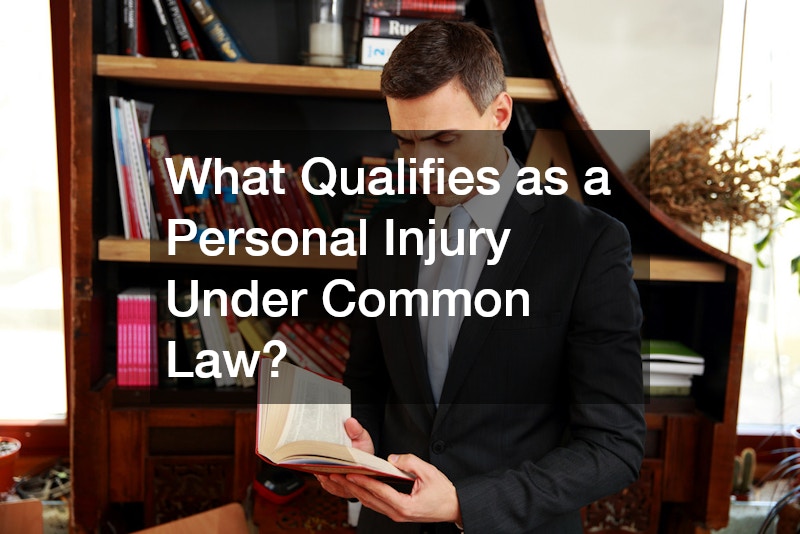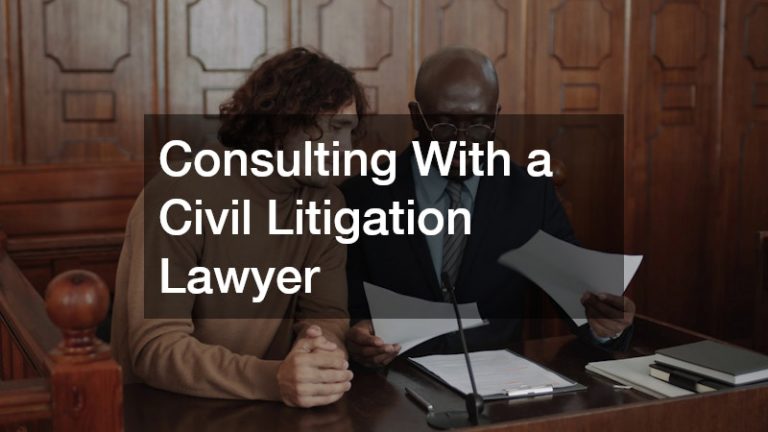

Navigating the complexities of personal injury law can be daunting. For those unfamiliar with legal proceedings, understanding their rights and responsibilities after an accident often begins with seeking answers to fundamental questions. This article delves into the most frequently asked questions clients pose to lawyers about personal injury cases, focusing on common law claims. Each section provides clarity and essential information to better understand personal injury legal proceedings, ensuring individuals can make informed decisions when seeking justice. By addressing these questions comprehensively, readers will gain a deeper insight into how the legal process unfolds and what steps to take to protect their rights.
Understanding personal injury law is not just about knowing legal terminology; it is about empowering individuals to advocate for themselves and their loved ones effectively. Many people hesitate to pursue claims because they feel overwhelmed or unsure of the process. This guide seeks to remove that uncertainty by breaking down complex topics into manageable, actionable insights. Whether you are dealing with a minor accident or a life-altering injury, the information provided here will help illuminate the path forward.
Additionally, this article underscores the importance of consulting professionals such as local personal injury attorneys. Legal experts bring invaluable knowledge and experience to the table, ensuring that clients’ rights are protected every step of the way. With the right support and a clear understanding of the law, achieving a fair and just outcome becomes more attainable.
1. What Qualifies as a Personal Injury Under Common Law?
A personal injury under common law refers to harm or damage caused to an individual’s body, mind, or emotions due to someone else’s negligence or intentional actions. An attorney often explains that personal injury claims encompass a wide range of incidents, including car accidents, workplace injuries, slips and falls, and cases of medical malpractice.
Determining fault and liability is a cornerstone of personal injury cases. For a claim to proceed, there must be evidence showing that the defendant owed a duty of care to the plaintiff and that this duty was breached, causing harm. Common law principles play a crucial role in assessing the circumstances and establishing accountability. Understanding these principles often involves analyzing past cases to see how similar situations were resolved. A personal injury lawyer can offer valuable insights into how these precedents may apply.
2. How Do I File a Personal Injury Claim?
Filing a personal injury claim involves a series of well-defined steps, often guided by local personal injury attorneys. The process begins with gathering necessary documentation, such as medical records, accident reports, and witness statements. These pieces of evidence are vital for building a strong case. Additionally, a detailed timeline of events leading to the injury can help establish the facts clearly.
Statutes of limitations dictate the timeframe within which a claim must be filed. Missing these deadlines can result in losing the right to seek compensation. An attorney can provide crucial guidance on ensuring timely filing and avoiding procedural pitfalls. Consulting local injury attorneys early in the process ensures individuals understand their obligations and rights. Moreover, early consultation can help identify potential challenges and develop strategies to address them effectively.
3. How Is the Compensation Calculated?
Compensation in personal injury cases is calculated based on several factors, as explained by a personal injury lawyer. These factors include economic damages, such as medical expenses and lost wages, as well as non-economic damages, like pain and suffering or emotional distress. In some cases, punitive damages may also be awarded if the defendant’s behavior was particularly reckless or malicious.
Insurance companies play a significant role in determining settlements. While their goal is often to minimize payouts, local injury lawyers work to ensure fair compensation by negotiating on behalf of their clients. The distinction between economic and non-economic damages underscores the importance of thorough documentation and expert legal representation. Additionally, understanding how future medical needs and long-term impacts of the injury are assessed is critical for obtaining a comprehensive settlement. Consulting with a personal injury law firm can help maximize potential compensation by presenting a compelling case.
4. Can I Handle My Personal Injury Claim Without a Lawyer?
While it is technically possible to handle a personal injury claim without legal representation, doing so carries substantial risks. Cases involving medical malpractice, for example, require a deep understanding of legal and medical complexities that most individuals lack. Similarly, claims involving multiple parties or extensive damages can be overwhelming without professional assistance.
An attorney brings expertise in negotiating with insurance companies and understanding procedural requirements. Without legal representation, individuals may inadvertently weaken their case or settle for less compensation than they deserve. Consulting local injury attorneys ensures that all aspects of the claim are thoroughly addressed. Moreover, a lawyer’s experience can be invaluable in identifying potential pitfalls and ensuring that the claim is presented effectively. The assistance of car crash lawyers or other specialized attorneys can be particularly crucial in achieving a favorable outcome.
5. What Should I Do Immediately After an Accident?
Taking the right steps immediately after an accident can significantly impact the outcome of a personal injury claim. Consulting attorneys early on is advisable to protect your rights and interests. Knowing what to do can also help reduce stress and uncertainty during a challenging time.
Key actions include gathering evidence, such as photos of the scene, obtaining contact information from witnesses, and documenting injuries. Additionally, seeking prompt medical attention is crucial, not only for health reasons but also for creating a record of the injuries sustained. Early interactions with insurance companies also play a pivotal role. Local personal injury attorneys often advise caution during these interactions to avoid jeopardizing the claim. Providing too much information or making statements that could be misinterpreted may harm the case. Personal injury lawyers can guide you on what to say and what to avoid, ensuring you protect your claim’s integrity.
6. How Long Does It Take to Resolve a Personal Injury Case?
The timeline for resolving a personal injury case varies depending on several factors, as local injury lawyers often explain. The complexity of the case, availability of evidence, and willingness of parties to settle can all influence the timeframe. Some cases are resolved within months, while others may take years, particularly if they go to trial.
Typical stages of the process include initial filing, evidence gathering, negotiation, and, if necessary, trial. While settlements can expedite resolution, trials may extend the duration but sometimes result in higher compensation. Car crash lawyers emphasize the importance of patience and persistence throughout this process. Additionally, understanding the timeline helps manage expectations and reduces frustration as the case progresses. Working with a personal injury law firm ensures that the process is streamlined and that all necessary steps are taken promptly.
7. What if I Was Partially at Fault for the Accident?
Comparative negligence laws address situations where the injured party shares some responsibility for the accident. Car crash lawyers frequently encounter cases where clients worry about the impact of partial fault on their claims. These laws vary by jurisdiction, but most allow for some recovery of damages as long as the plaintiff’s fault does not exceed a certain threshold.
In many jurisdictions, individuals can still recover damages even if they were partially at fault, though the compensation amount may be reduced proportionally. Understanding these laws and negotiating effectively with insurers are tasks best handled by personal injury attorneys. Furthermore, clear communication about the extent of fault and the circumstances of the accident can help mitigate potential reductions in compensation. Experienced local injury lawyers can advocate for their clients, ensuring a fair assessment of fault and damages.
8. Can I Reopen a Case After Settling?
Once a settlement is reached in a personal injury case, it is generally considered final. However, exceptions may exist, such as cases involving fraud or newly discovered evidence. A personal injury law firm can help clients explore whether reopening a case is viable in rare circumstances. Additionally, some settlements include clauses that explicitly prevent reopening, which makes reviewing settlement terms with an attorney critical.
It is crucial to understand the potential consequences of reopening a case. Doing so may involve additional legal costs and risks. Consulting local injury attorneys can provide clarity on whether pursuing this route is worthwhile. Understanding the legal standards for reopening cases ensures that decisions are made with full awareness of potential outcomes. Reopening a case may require demonstrating that extraordinary circumstances exist, which can be a high legal bar to clear.
9. How Do Common Law Rules Apply to My Case?
Common law principles form the foundation of many personal injury cases, distinguishing them from statutory law. Personal injury attorneys explain that these principles rely on precedents set by previous court decisions. This means that the outcome of a case often depends on how similar cases have been resolved in the past.
The application of common law rules varies depending on the specifics of the case. For instance, negligence claims often hinge on proving duty of care, breach, causation, and damages. Working with local personal injury attorneys ensures that clients receive tailored advice based on these foundational principles. Moreover, understanding how common law interacts with statutory regulations can provide additional clarity on the legal framework governing personal injury cases. This insight helps clients appreciate the broader context of their claims and the importance of aligning their strategies with established legal doctrines.
10. What Are My Rights If I’m Injured by Someone Else’s Negligence?
When injured due to another party’s negligence, individuals have the right to pursue justice and compensation. Local injury attorneys emphasize the importance of understanding the concept of duty of care—the obligation of individuals and entities to act responsibly to avoid harming others. This duty extends to various situations, including road safety, workplace environments, and medical care.
Victims can seek compensation for medical expenses, lost income, and other damages resulting from the injury. A personal injury lawyer can guide clients through the process of asserting their rights and achieving a fair outcome. Additionally, understanding the full scope of legal protections available ensures that victims can pursue all avenues of recourse effectively. Personal injury law firms provide the expertise needed to navigate these complex scenarios and advocate for clients’ best interests.
Conclusion
Understanding the complexities of personal injury cases and common law claims empowers individuals to make informed decisions when seeking legal recourse. From determining fault to navigating the filing process and calculating compensation, each step requires careful consideration. Consulting qualified local personal injury attorneys or a personal injury law firm ensures that clients are well-equipped to handle their unique circumstances. By addressing these top 10 questions, individuals can gain the confidence needed to pursue justice effectively.
Moreover, staying informed about rights and responsibilities helps ensure that the legal process is navigated successfully, resulting in fair and just outcomes. The support of experienced personal injury attorneys is invaluable in helping clients overcome challenges and secure favorable results. With the right guidance, individuals can focus on healing and rebuilding their lives, knowing that their legal matters are in capable hands. Ultimately, the pursuit of justice is about more than compensation—it is about restoring dignity and ensuring accountability in the face of adversity.







